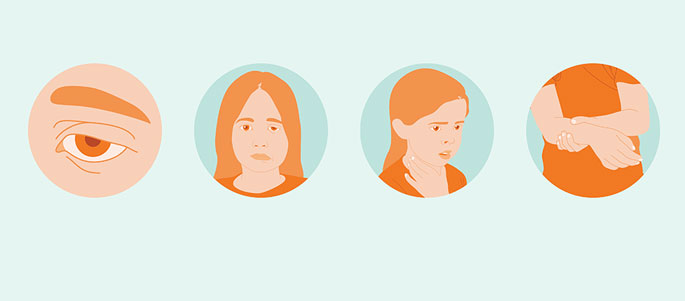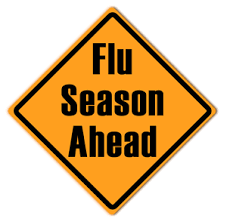May 2019
Vaccinations and your child
Immunizations have had an enormous impact on improving the health of children in the United States. Most parents today have never seen first-hand the devastating consequences that vaccine-preventable diseases have on a child, a family, or community. It is important that we continue to protect our children with vaccines because outbreaks of vaccine-preventable diseases like pertussis, mumps, and measles can and do occur in this country
Vaccination is one of the best ways parents can protect infants, children, and teens from 16 potentially harmful diseases. Vaccine-preventable diseases can be very serious, may require hospitalization, or even be deadly — especially in infants and young children. Vaccines reduce your child’s risk of infection by working with their body’s natural defenses to help them safely develop immunity to disease.
The CDC (Centers for Disease Control) offers information to parents to help them make informed decisions regarding childhood vaccinations. Click here for more information from the CDC. Children’s Hospital of Philadelphia (CHOP) is another excellent resource for parents seeking information about the safety of childhood vaccinations. Click here for more information from CHOP.
January 2019
What’s the Bottom Line on the Risks of E-cigarettes for Kids, Teens, and Young Adults?
- The use of e-cigarettes is unsafe for kids, teens, and young adults.
- Most e-cigarettes contain nicotine. Nicotine is highly addictive and can harm adolescent brain development, which continues into the early to mid-20s.1
- E-cigarettes can contain other harmful substances besides nicotine.
- Young people who use e-cigarettes may be more likely to smoke cigarettes in the future.
What Are E-cigarettes?
- E-cigarettes are electronic devices that heat a liquid and produce an aerosol, or mix of small particles in the air.
- E-cigarettes come in many shapes and sizes. Most have a battery, a heating element, and a place to hold a liquid.
- Some e-cigarettes look like regular cigarettes, cigars, or pipes. Some look like USB flash drives, pens, and other everyday items. Larger devices such as tank systems, or “mods,” do not look like other tobacco products.
- E-cigarettes are known by many different names. They are sometimes called “e-cigs,” “e-hookahs,” “mods,” “vape pens,” “vapes,” “tank systems,” and “electronic nicotine delivery systems (ENDS).”
- Using an e-cigarette is sometimes called “vaping” or “JUULing.”
How Do E-cigarettes Work?
- E-cigarettes produce an aerosol by heating a liquid that usually contains nicotine, flavorings, and other chemicals that help to make the aerosol.
- The liquid used in e-cigarettes often contains nicotine and flavorings. This liquid is sometimes called “e-juice,” “e-liquid,” “vape juice,” or “vape liquid.”
- Users inhale e-cigarette aerosol into their lungs. Bystanders can also breathe in this aerosol when the user exhales it into the air.
- E-cigarette devices can be used to deliver marijuana and other drugs.
What Is JUUL?
October 2018
ACUTE FLACCID MYELITIS
Parents may be hearing about children in the United States who suddenly become weak in their arms or legs from a condition called acute flaccid myelitis, or AFM. The CDC is actively investigating AFM cases and monitoring disease activity across the United States. They are working closely with healthcare providers and state and local health departments. From August 2014 through September 2018, the CDC has received information on a total of 386 confirmed cases of AFM across the US; most of the cases have occurred in children. As of October 25th Pennsylvania has three confirmed cases and one suspected case in 2018.
AFM affects the nervous system, specifically the spinal cord, which can cause the muscles and reflexes in the body not to work normally. AFM is rare, but it can lead to serious neurologic problems. You should seek medical care right away if you or your child develops any of these symptoms:
- weakness and loss of muscle tone and reflexes in the arms or legs
- facial droop or weakness
- difficulty moving the eyes
- drooping eyelids
- difficulty swallowing
- slurred speech

What is Not Known:
- The cause of most of the AFM cases remains unknown.
- What caused the increase in AFM cases starting in 2014.
- Who is at higher risk for developing AFM, or the reasons why they may be at higher risk.
- The long-term effects of AFM. Some patients diagnosed with AFM have recovered quickly, and some continue to have paralysis and require ongoing care.
Prevention
It is always important to practice disease prevention steps such as: 
- Staying up-to-date on vaccines
- Washing your hands
- Protecting yourself from mosquito bites.
More information can be found at: https://www.cdc.gov/acute-flaccid-myelitis/index.html
October 2018
What is the flu? Influenza (the flu) is an infection of the nose, throat, and lungs caused by influenza viruses. There are many different influenza viruses that are constantly changing. Flu viruses cause illness, hospital stays and deaths in the United States each year.
How serious is the flu? Flu illness can vary from mild to severe. While the flu can be serious even in people who are otherwise healthy, it can be especially dangerous for young children and children of any age who have certain long-term health conditions.
How does the flu spread? Most experts believe that flu viruses spread mainly by droplets made when people with the flu cough, sneeze or talk. These droplets can land in the mouths or noses of people who are nearby. Less often, a person might get the flu by touching something that has flu virus on it and then touching their own mouth, eyes or nose.
What are the symptoms of the flu? Symptoms of the flu can include fever, cough, sore throat, runny or stuffy nose, body aches, headache, chills, fatigue and sometimes vomiting and diarrhea (more common in children than adults).

How long can a sick person spread the flu to others? People with the flu may be able to infect others by shedding virus from 1 day before getting sick to 5 to 7 days after. However, children and people with weakened immune systems can shed virus for longer, and may be still contagious past 5 to 7 days of flu illness, especially if they still have symptoms.

How can I protect my child against the flu? To protect against the flu, the first and most important thing you can do is to get a flu vaccine for yourself and your child.
When should my child get vaccinated? Getting vaccinated before flu activity begins helps protect you once the flu season starts in your community. It takes about two weeks after vaccination for the body’s immune response to fully respond and for you to be protected so make plans to get vaccinated. CDC recommends that people get a flu vaccine by the end of October, if possible. However, getting vaccinated later can still be beneficial. CDC recommends ongoing flu vaccination as long as influenza viruses are circulating, even into January or later. Children aged 6 months through 8 years old who need two doses of vaccine should get the first dose as soon as possible to allow time to get the second dose before the start of flu season. The two doses should be given at least 28 days apart.
What are some of the other ways I can protect my child against the flu?
- Stay away from people who are sick.
- Keep your sick child stay home for at least 24 hours after his or her fever is gone except to get medical care or for other necessities. The fever should be gone without the use of a fever reducing medicine.
- Cover your mouth and nose with a tissue when you cough or sneeze. Throw the tissue in the trash after it has been used.
- Wash hands often with soap and water. If soap and water are not available, use an alcohol-based hand rub.
- Avoid touching your eyes, nose and mouth. Germs spread this way.
- Clean and disinfect hard surfaces and objects that may be contaminated with germs, including bathroom surfaces, kitchen counters and toys for children. Clean by wiping them down with a household disinfectant according to directions on the product label.

Can my child go to school if he or she is sick? No. Your child should stay home to rest and to avoid giving the flu to other children or caregivers.
When can my child go back to school after having the flu? Keep your child home from school for at least 24 hours after their fever is gone. (The fever should be gone without the use of a fever-reducing medicine.) A fever is defined as 100°F (37.8°C) or higher.
For more information, visit www.cdc.gov/flu
November 2016
The #1 thing to do for your kids today.

Free or Low-Cost Health Insurance for Your Kids
It’s that time of year again—Open Enrollment—and Pennsylvanians everywhere are exploring their best options for health insurance. For the past two decades, CHIP has been providing a superior healthcare coverage for Pennsylvania’s uninsured kids up to age 19—at free or low cost.
CHIP is a premier health insurance plan offering a more comprehensive coverage than other plans. CHIP helps take the burden off of health care expenses, covering Pennsylvania kids who are not eligible for, or enrolled in, Medical Assistance.
Your children can get the vaccines they need, doctor visits when they’re sick and the medication they need to get well. They can even get dental and eye care – and eyeglasses too!
Pennsylvania’s Children’s Health Insurance Program (CHIP) provides the coverage for uninsured kids in Pennsylvania up to age 19. Enroll now. It’s easy for parents to enroll. Whether their language of comfort is English or Spanish, we have the materials ready for them.
- Apply today. www.CHIPcoversPAkids.com
February 2016
The Pennsylvania Department of Health is providing the information below to inform commonwealth residents about the Zika virus, its symptoms and risks, and how to prevent contracting it if you plan to travel to affected areas.
Zika virus occurs in tropical areas with large mosquito populations, and is known to circulate in Africa, the Americas, Asia and the Pacific. The virus was first discovered in 1947, but the first outbreak of the disease wasn’t documented until 2007.
Zika virus is spread primarily to people through the bite of an infected Aedes species of mosquito. Zika virus cannot be transmitted through casual contact. The incubation period (time from being bitten by the infected mosquito to symptoms) is not clear, but is likely between a few days to one week.
The symptoms, which are usually mild and last for 2-7 days, include:
o Fever;
o Rash;
o Muscle and/or joint pain;
o Conjunctivitis (red eyes); and
o Headache.
Severe illness requiring hospitalization is uncommon. Deaths from Zika virus are rare.
• See your health care provider if you develop the symptoms described above and have visited an area where Zika is found.
• If you have recently traveled to Zika-affected areas, tell your health care provider when and where you traveled.
TREATMENT
The best way to prevent Zika is to protect against mosquito bites when traveling to an affected area. This can be done by:
• Using insect repellent (an EPA-registered insect repellent containing DEET used according to label instructions);
• Wearing preferably light-colored clothes that cover as much of the body as possible;
• Using physical barriers such as screens, closed doors, and windows; and
• Sleeping under mosquito nets.
POTENTIAL RISK TO PREGNANT WOMEN
November 2015
Harrisburg, PA – The Department of Health today launched the “Stopping the Flu Starts with YOU” campaign, which urges Pennsylvanians to protect themselves and their loved ones against the seasonal flu by getting vaccinated and taking other preventive measures.
“Getting a vaccine is the first and best way to protect against the flu,” said Secretary of Health Dr. Karen Murphy. “We know that certain people are at greater risk for developing flu-related complications. These individuals include infants and children, seniors, pregnant women, and those with chronic medical conditions. It is especially important that these at-risk individuals get annual flu vaccines, as well as their caregivers and medical providers.”
The Centers for Disease Control and Prevention (CDC) recommends a yearly flu vaccine for everyone 6 months of age and older. There are two important reasons to get a flu vaccine every year. First, flu viruses are constantly changing, and vaccines may be updated yearly to protect against the viruses that research indicates will be most common during the upcoming flu season. Second, a person’s immune protection from the vaccine decreases over time.
In addition to getting vaccinated, the Department of Health asks all Pennsylvanians to consider practicing the following preventive measures:
•Wash hands often with soap and warm water or use an alcohol-based hand sanitizer.
•Cover nose and mouth with a tissue when coughing or sneezing, and throw any used tissues in the trash.
•Keep hands away from face, and don’t touch eyes, nose, or mouth.
•Disinfect frequently used surfaces like doorknobs, light switches, TV remotes, or countertops.
•Avoid contact with individuals who may have the flu. When sick, stay home until at least 24 hours after your fever goes away on its own without the use of fever-reducing medicine.
”Research supports the reality that getting a vaccine will not give an individual the flu,” said Secretary Murphy. “In fact, vaccines given with a needle do not contain ‘live’ flu viruses and cannot make you sick. If you do get sick after getting vaccinated, you were likely infected with the virus before vaccination or during the two-week window when your body is building up antibodies to protect you from the virus. Vaccines remain the safest, best protection against preventable illnesses like the flu.”
Flu seasons are unpredictable and can be severe. In the U.S., it is estimated that an average of 5 to 20 percent of the population gets the flu, and hundreds of thousands are hospitalized from seasonal flu-related complications. During Pennsylvania’s last flu season, there were 55,509 cases of flu, and 221 Pennsylvanians died from flu complications. Rates of serious illness and death are highest among persons over the age of 65 and individuals of any age who have chronic medical conditions that place them at increased risk for complications from influenza.
For more information about influenza, visit www.flufreepa.com.

